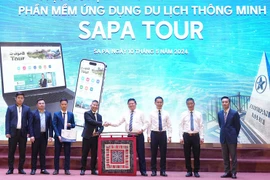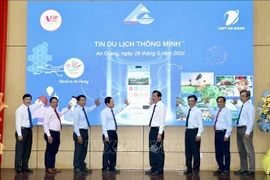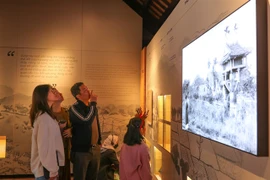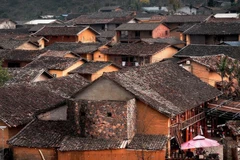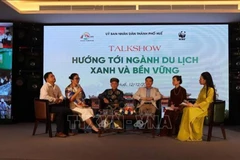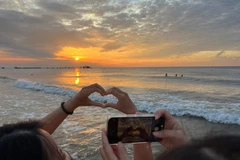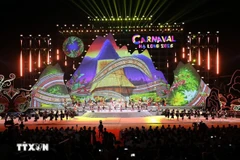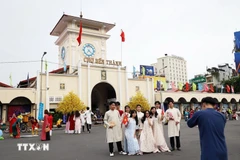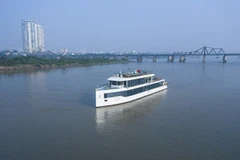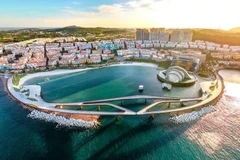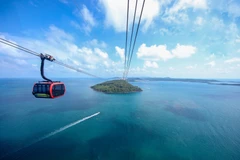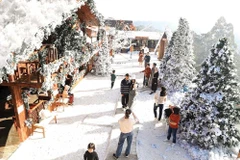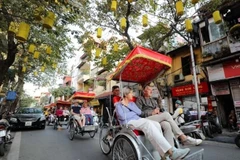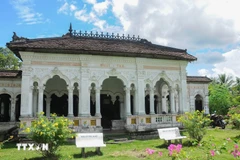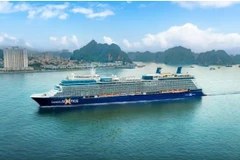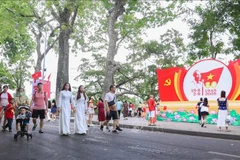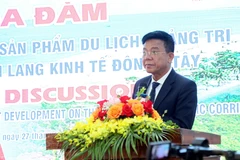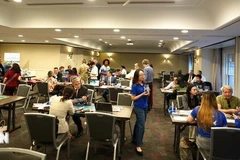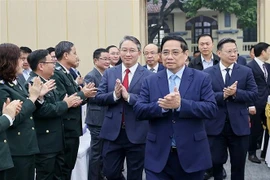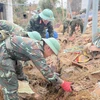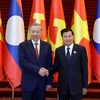Can Tho (VNA) – Virtual reality (VR) and augmented reality (AR) technologies should be applied to develop tourism in the Mekong Delta, a region with significant advantages and strengths in eco-tourism and experiential tourism, said insiders.
The Mekong Delta boasts a rich diversity of attractive tourism resources, including lush fruit orchards, a 28,000-km network of canals, coastal mangrove forests, and unique wetland areas. It is also home to many historical relic sites, cultural heritage, and scenic landscapes.
Experts said that tourism destinations in the region can be digitised through VR and AR technologies, offering a realistic and immersive experience for tourists. For example, VR technology can recreate the space of the Cai Rang floating market, enabling users to experience activities of the market through VR glasses without having to visit the site.
The technologies also help enhance personal experiences as they offer tourists a chance to explore virtually before they visit actual destinations, thus diversifying tourism activities.
Vu Tuan Viet, Director of Vietnam Virtual Reality Technology Development JSC, said that VR and AR, with their ability to provide lively experiences, is becoming an important tool for tourism development.
Not only meeting the demand of modern tourism, VR and AR applications are also useful for fuelling the growth of the digital economy, helping enhance the competitiveness of Can Tho city and the Mekong Delta as a whole at both national and international levels, he noted.
In the recent past, authorities of regional localities have focused on speeding up smart tourism through applying IT, building smart tourism portals, digitalising marketing activities, and developing applications using artificial intelligence, 3D and VR to provide tourists with unique experiences and help them locate destinations.
Tran Dong Phuong An, Deputy Director of the Department of Science and Technology of Can Tho, revealed that "Can Tho Tourism", a tourism portal and smart mobile application, has been launched, enabling visitors to easily search for information related to locations, accommodation, cuisine, tourist spots, shops, entertainment, travel agencies, and events.
All destinations, tourism products, cultural events, and entertainment activities in Can Tho will be digitised, towards building 3D images for popular tourist spots, An said.
However, Tran Huu Hiep, Vice President of the Mekong Delta Tourism Association, said the VR application in regional tourism development still faces several obstacles, including the shortages of comprehensive technological infrastructure, high-quality human resources, along with support policies and incentives.
He suggested implementing concerted solutions such as building mechanisms and policies to increase the application of VR/AR technologies to education - training and tourism; developing technological infrastructure and stepping up digital transformation; and boosting regional and market connectivity by optimising VR/AR.
Applying VR/AR technologies in Can Tho and the Mekong Delta at large is an inevitable trend to develop tourism and better connect the region with international markets, he added./.

